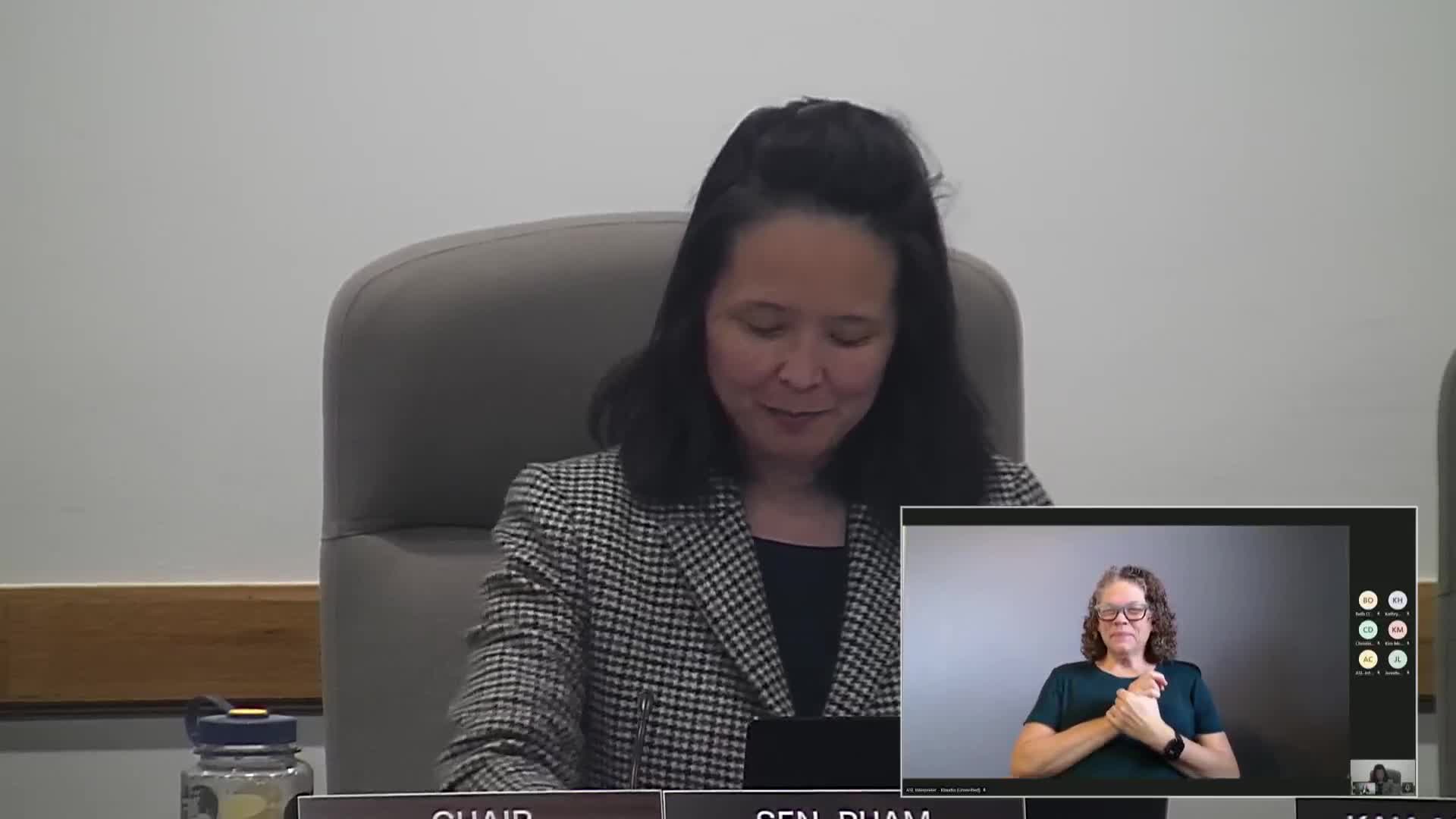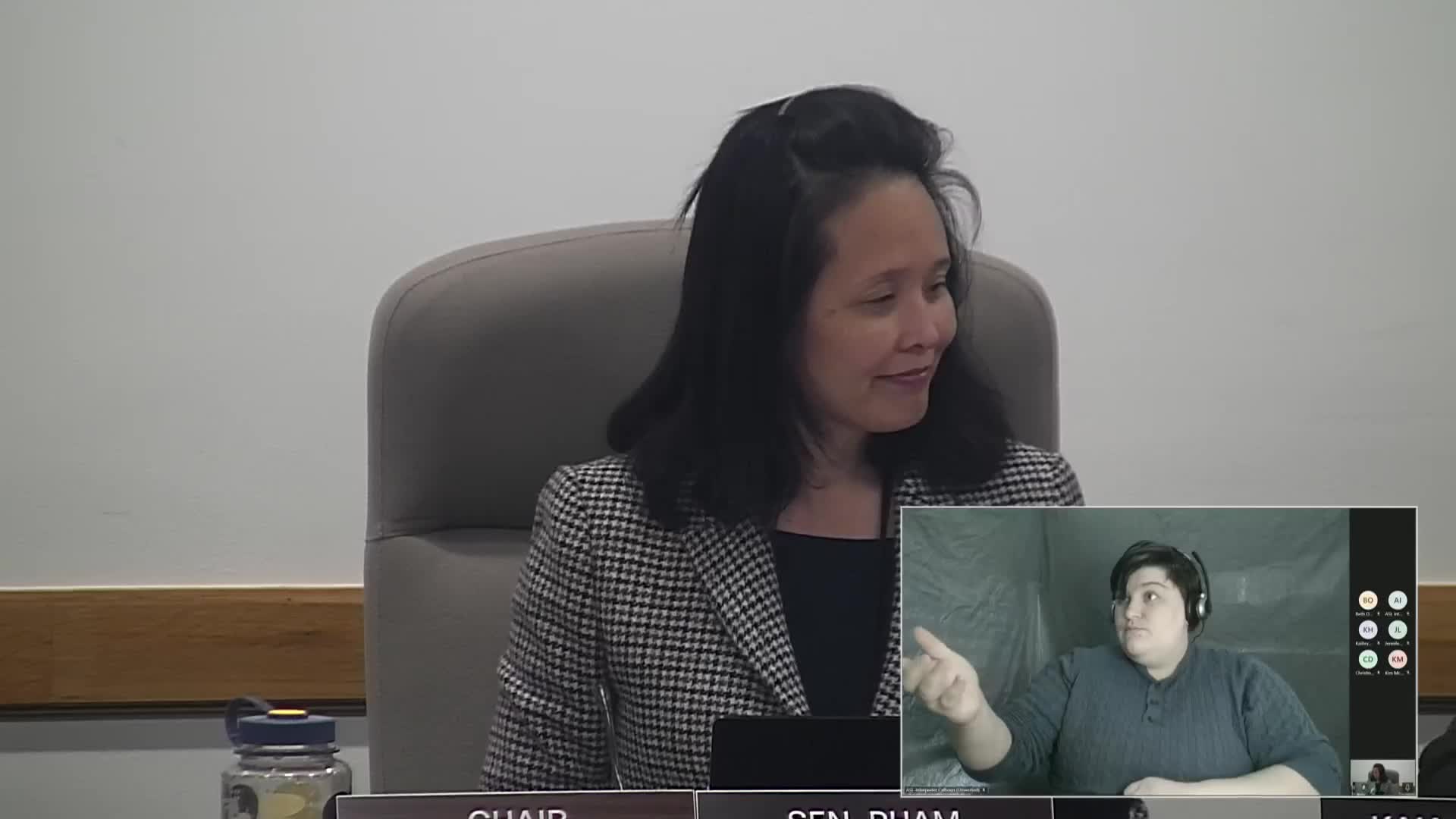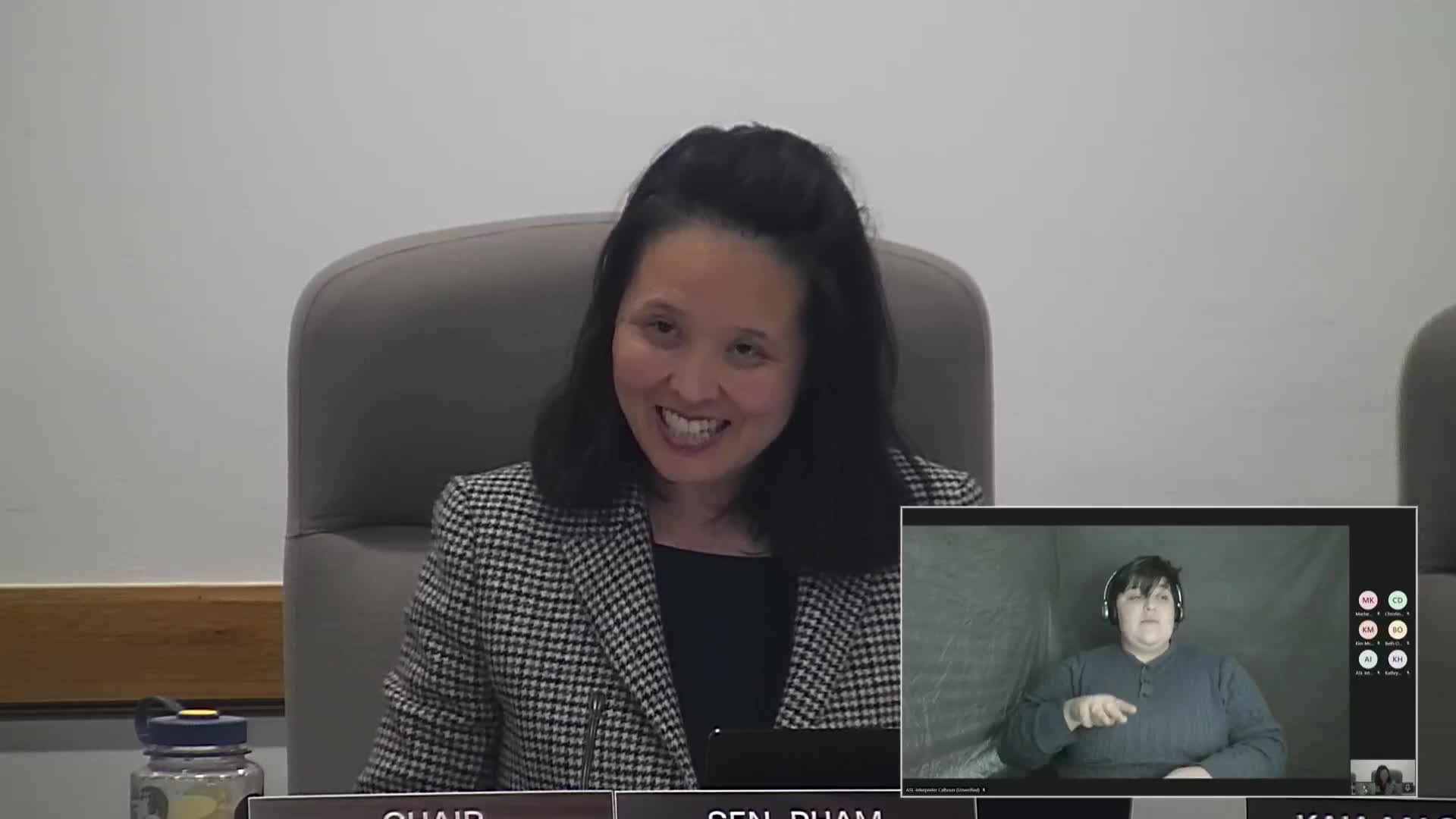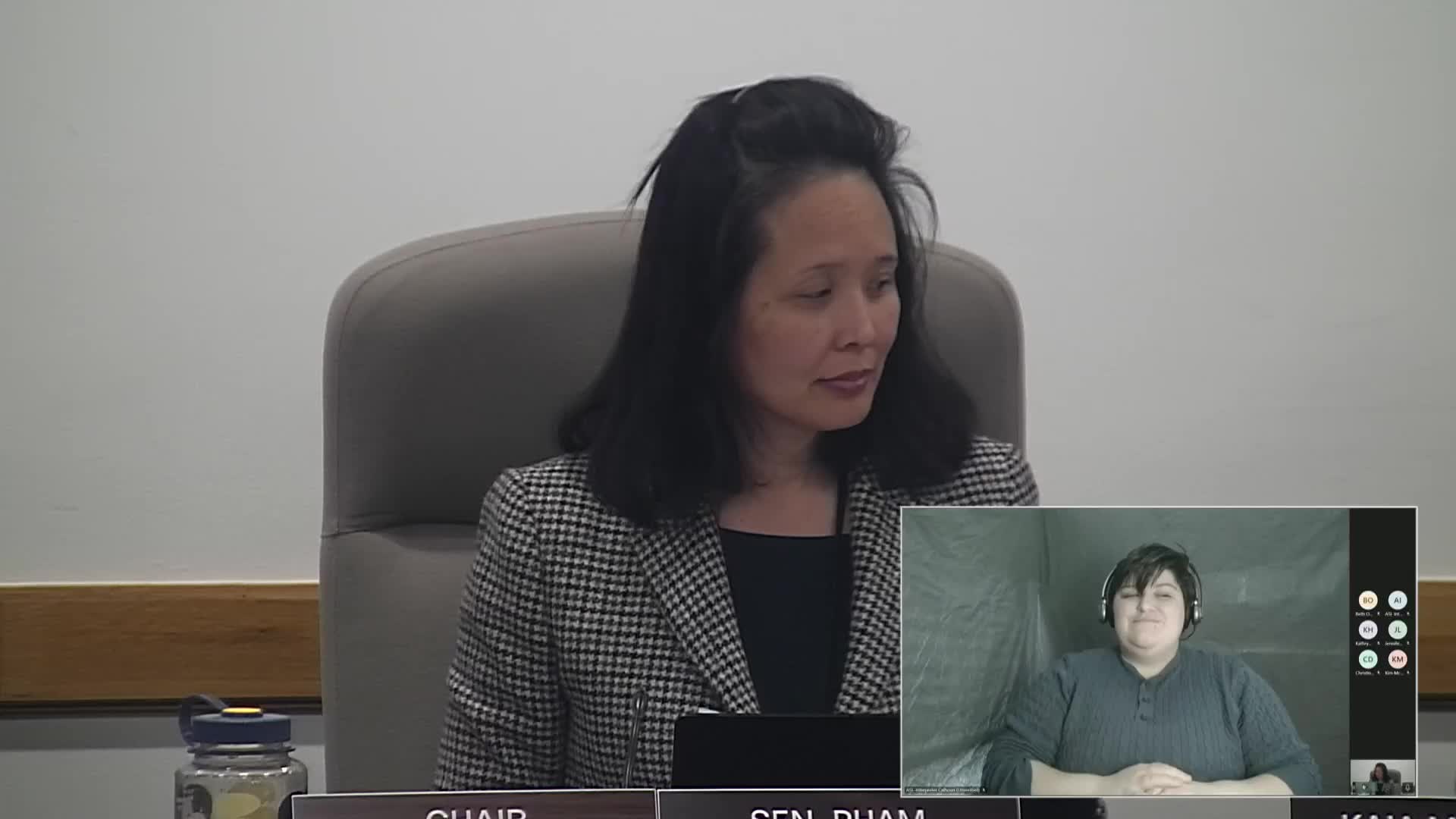Article not found
This article is no longer available. But don't worry—we've gathered other articles that discuss the same topic.

Committee hears package to protect tenants as affordability restrictions expire; advocates seek mitigation fund and dashboard improvements

Senate committee adopts amendment and advances bill allowing intergovernmental governance of local improvement districts

Committee hears compromise on shortening notice for buyer-occupant sales; tenant advocates push protections

